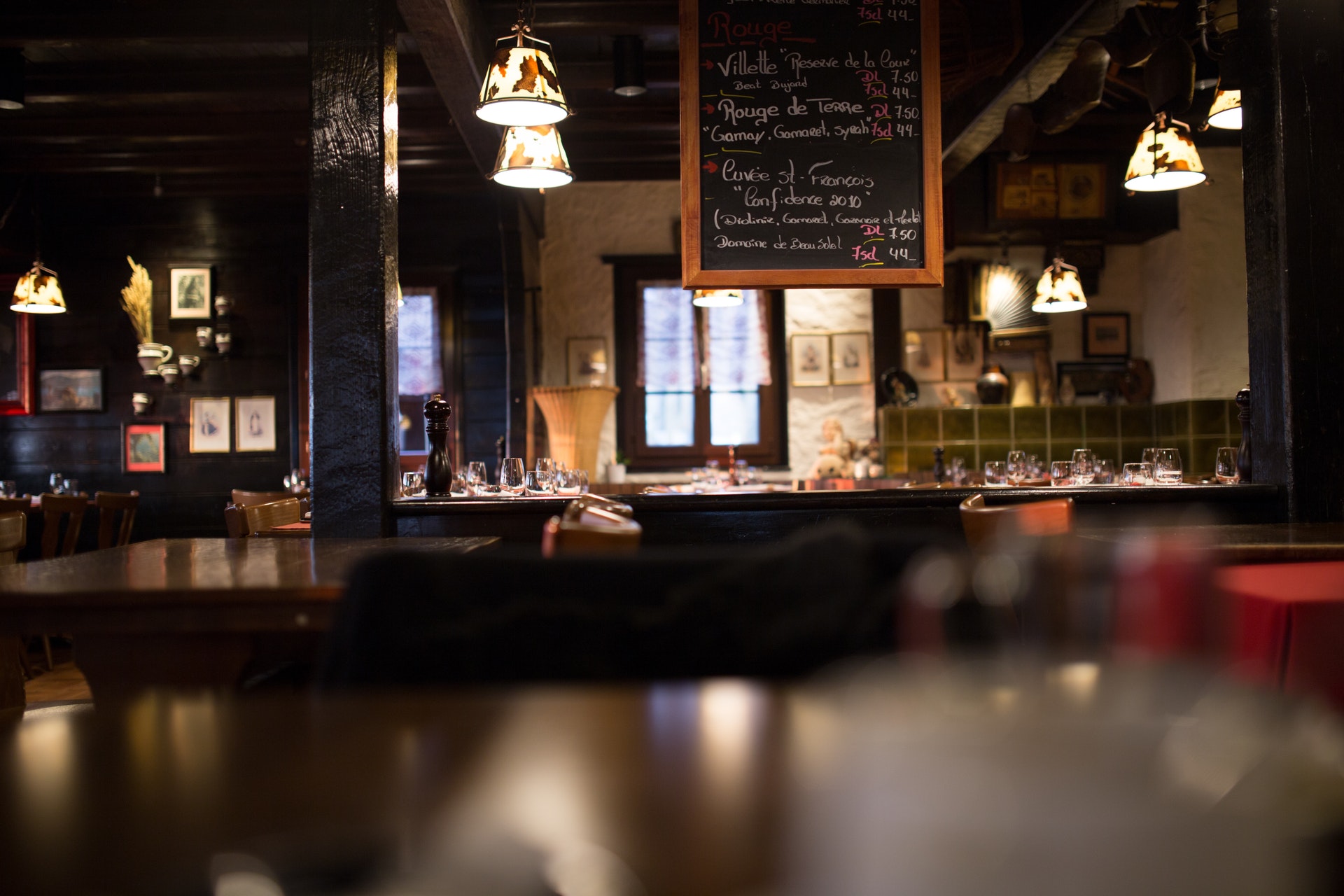
Pub & Restaurant Sales, Mergers, and Acquisitions
The sale, merger, or acquisition of a pub or restaurant presents unique legal, financial, and operational challenges. Whether you’re a buyer looking to invest or a seller seeking a smooth exit, it’s vital to anticipate and resolve potential hurdles.
Our Recent Experience With Pubs & Restaurants
Assisting Burger Guys Ltd with Commercial Leases
We successfully advised Burger Guys Ltd on negotiating and securing commercial lease agreements for their restaurant premises, ensuring favourable terms and compliance with landlord obligations.
Supporting a Pub Chain with TUPE Transfers & Sale Structuring
We provided legal support to a chain of gastropubs, ensuring a seamless TUPE transfer of employees, resolving leasehold complications, and structuring the sale to minimise tax liabilities.
Securing Funding for a Brewery’s Expansion
We assisted a brewery in securing EIS investment funding, helping them expand their production facilities and open additional taprooms in compliance with relevant licensing laws.
If you’re considering buying, selling, or merging a pub or restaurant, get in touch today for expert legal support.
Common Issues & Solutions
1. Licensing & Regulatory Compliance
Issue:
Pubs and restaurants must adhere to strict licensing laws, covering alcohol sales, food hygiene, late-night operations, and entertainment. Failing to transfer or obtain the correct licences can delay or even prevent a transaction from completing.
Buyer Resolution:
- Conduct thorough due diligence on existing premises’ licences and compliance history.
- Ensure all necessary licences can be transferred or re-applied for before completion.
- Engage with licensing specialists early to avoid unexpected delays.
Seller Resolution:
- Provide a clear record of compliance and disclose any conditions attached to licences.
- If there are outstanding regulatory issues (e.g. health and safety breaches), resolve them before marketing the business.
- Assist the buyer with a smooth transition by introducing them to the relevant licensing authorities.
2. Leasehold Complications & Landlord Consent
Issue:
If the premises are leasehold, landlord approval may be required before a sale can proceed. Issues such as restrictive covenants, rent increases, or disputes with the landlord can affect the deal.
Buyer Resolution:
- Review lease terms carefully, paying attention to rent review clauses, repair obligations, and break clauses.
- Negotiate lease assignment terms early and obtain the landlord’s consent in writing.
- If the lease is unfavourable, consider renegotiating terms before proceeding with the purchase.
Seller Resolution:
- Notify the landlord of the proposed sale as soon as possible to avoid delays.
- Ensure all lease obligations (e.g. rent, repairs) are up to date to prevent objections from the landlord.
- If the landlord is reluctant to approve the transfer, negotiate with the buyer on alternative premises options.
3. TUPE & Employment Liabilities
Issue:
Under TUPE regulations, employees automatically transfer to the new owner, meaning buyers inherit employment liabilities, such as unpaid wages, redundancy risks, and disputes.
Buyer Resolution:
- Conduct a full HR review, checking staff contracts, redundancy obligations, and ongoing disputes.
- Negotiate indemnities and warranties to protect against unknown employment claims.
- Assess whether staff restructuring is necessary and ensure compliance with TUPE consultation rules.
Seller Resolution:
- Provide accurate employee records, contracts, and payroll information upfront.
- Address any outstanding disputes or unpaid wages before the sale.
- Assist with TUPE consultation requirements to ensure staff are properly informed.
4. Supplier & Inventory Challenges
Issue:
Many pubs and restaurants rely on long-term supplier contracts for food, beverages, and equipment. Some of these agreements may not be transferable, or they may include minimum purchase commitments that don’t suit a new owner.
Buyer Resolution:
- Review supplier contracts to determine which agreements can be assigned.
- Renegotiate terms where necessary, ensuring contracts align with the new business model.
- Conduct a stock valuation before completion to avoid unexpected costs.
Seller Resolution:
- Disclose all supplier agreements and inventory records early in the process.
- If certain contracts cannot be assigned, assist in renegotiating new agreements for the buyer.
- Ensure accurate stock valuation to prevent disputes over price adjustments.
5. Financial Liabilities & Hidden Costs
Issue:
Outstanding debts, VAT obligations, business rates, or historic financial mismanagement can be uncovered during due diligence, affecting the business valuation and deal structure.
Buyer Resolution:
- Request full financial statements, tax records, and debt disclosures.
- Conduct a VAT and business rates review to check for hidden liabilities.
- Negotiate price adjustments, indemnities, or retention mechanisms to protect against unforeseen debts.
Seller Resolution:
- Prepare a detailed financial report, ensuring transparency in accounts and liabilities.
- Settle outstanding debts before completion or agree on a repayment plan.
- Offer financial warranties where appropriate to reassure the buyer.
6. Reputation & Customer Retention Risks
Issue:
A pub or restaurant’s success is heavily dependent on brand reputation and loyal customers. A change in ownership or management can risk customer loss and negative PR.
Buyer Resolution:
- Implement a brand continuity strategy, retaining key elements of the business that attract customers.
- Where possible, retain existing staff to ensure consistency in service.
- Invest in marketing campaigns and promotions to reassure existing customers and attract new ones.
Seller Resolution:
- Offer a handover period, introducing the new owner to key customers, suppliers, and stakeholders.
- Provide insights into successful marketing strategies and customer engagement methods.
- Consider a goodwill agreement, where your name remains associated with the business for a short period post-sale.
7. Planning Permission & Property Constraints
Issue:
If the buyer intends to renovate, expand, or change the business model, planning permission may be required. Listed building restrictions, conservation area rules, or change-of-use constraints can delay operations.
Buyer Resolution:
- Conduct a full property review, checking planning restrictions and change-of-use feasibility.
- If planning permission is required, engage with the local authority early.
- Ensure any necessary approvals are a condition of the sale.
Seller Resolution:
- Provide accurate property records and planning history to prevent disputes.
- If any prior applications have been rejected, disclose reasons to the buyer.
- If applicable, assist with change-of-use applications before completion.
Frequently Asked Questions (FAQs)
-
What happens if a pub or restaurant sale is agreed but the premises licence is not transferred in time?
-
The premises licence is essential for operating a pub or restaurant, particularly if alcohol sales or late-night operations are involved. If the licence is not transferred before completion, the new owner may legally be unable to trade, potentially resulting in significant financial losses.
Solutions:
- Early Licensing Review: Buyers should review the premises licence status early in due diligence, ensuring there are no unresolved issues with the local authority.
- Temporary Licence Solutions: If there’s a risk of a delay, buyers can apply for a Temporary Event Notice (TEN) to legally operate for short periods until full transfer is secured.
- Completion Conditions: The sale agreement can include a “licence transfer condition”, meaning completion is contingent upon securing necessary permissions.
Sellers should ensure the licence is in good standing, with all fees, inspections, and compliance obligations up to date, to prevent any transfer obstacles.
-
Can a pub lease be assigned to a new owner, and what happens if the landlord refuses consent?
-
Most leased pubs and restaurants cannot be transferred without the landlord’s approval, and a landlord may block or delay the assignment, especially if they doubt the new owner’s financial strength.
Possible Scenarios & Solutions:
- Review Lease Terms: Some leases have a “no unreasonable refusal” clause, meaning the landlord cannot reject the transfer without valid business reasons. If this clause exists, legal action may be an option if consent is unfairly withheld.
- Guarantees & Rent Deposits: Landlords may demand personal guarantees from the new tenant or request an additional rent deposit. Buyers should negotiate these terms upfront to avoid unexpected financial commitments.
- Seller’s Negotiation Role: If the seller has a good relationship with the landlord, they may be able to facilitate discussions and present the buyer as a strong tenant, easing the transition.
If a lease cannot be transferred, alternative options include negotiating a new lease with the landlord or the seller retaining the lease and subletting to the buyer.
-
If a pub or restaurant is making a loss, can it still be sold as a going concern?
-
Yes, but buyers and sellers must approach the transaction carefully to ensure the business remains legally a “going concern” to avoid triggering insolvency-related legal issues.
Key Factors & Strategies:
- Evidence of Ongoing Trade: The business must be actively trading at the point of sale (not shut down), even if it’s operating at a loss.
- Asset vs. Share Sale: Buyers may prefer an asset purchase (buying only equipment, premises, and stock) to avoid inheriting debts. However, a share purchase may still be viable if tax reliefs, supplier agreements, or brand reputation are valuable.
- Restructuring Before Sale: If losses are due to poor cost management rather than lack of demand, sellers can restructure the business (e.g., renegotiating supplier contracts) before listing it for sale.
Buyers should scrutinise financials carefully to assess whether the loss-making business has turnaround potential, particularly if the brand, location, or leasehold terms are strong.
-
How can a seller avoid disputes over stock valuation at completion?
-
Stock is often a variable cost in pub and restaurant transactions, and disagreements over its value can delay completion or lead to post-sale disputes.
Best Practices for Sellers:
- Pre-Sale Inventory Audit: Conduct a full stock count in advance, categorising perishable and non-perishable items.
- Agreed Valuation Method: Sellers and buyers should agree on a valuation method upfront, whether it’s cost price, market value, or a formula based on turnover.
- Live Stock Count on Completion Date: If possible, a joint stock-take should be carried out on completion day, ensuring both parties agree on final figures.
If disputes arise, an independent third-party valuer can be appointed to assess stock fairly, reducing the risk of legal action post-sale.
-
Can a buyer renegotiate the price after due diligence if unexpected issues arise?
-
Yes, but price renegotiation depends on the terms of the deal and how the contract is structured.
Common Reasons for Renegotiation:
- Hidden debts or tax liabilities
- Unresolved landlord disputes
- Major repair costs uncovered in property surveys
- Declining sales figures
How to Handle Price Adjustments:
- Price Adjustment Clauses: Buyers should ensure the Heads of Terms includes a mechanism for reducing the price if due diligence uncovers material risks.
- Retention Agreements: If risks exist but the seller won’t lower the price, a portion of the completion funds can be held in escrow and released to the seller only if warranty clauses do not materialise in a defined period following completion.
- Negotiation Strategy: Buyers should present clear financial evidence of why a price reduction is justified—sellers are more likely to agree if figures support the claim.
A well-structured contract allows buyers to walk away or adjust the deal without incurring unnecessary legal costs.
How We Can Help
At The Jonathan Lea Network, we have extensive experience in pub and restaurant transactions across our team and can help ensure a legally sound and commercially successful process.
Our services include:
-
Exercise, including making all relevant property and business enquiries,
-
Lease negotiations and landlord consents
-
Drafting and negotiating the main share or asset purchase agreement, ensuring that the agreement is appropriate to the transaction size and issues involved.
-
TUPE compliance and employment law guidance
-
Licensing and regulatory guidance
-
Supplier contract reviews and assigning contract (if the transaction concerns a business sale)
Contact Us
If you’re considering selling or purchasing a pub or restaurant, get in touch with The Jonathan Lea Network for a free initial consultation.
📞 Phone: 01444 708640
✉️ Email: wewillhelp@jonathanlea.net
🌐 Online Contact Form
Our Team
What Our Clients Say
Request a Free
No Obligation
20 Minute Call
This introductory call is to discuss your matter so we can provide a well-considered quote.
However, please be aware that the free 20 minute call is at our discretion. If you are more looking for advice and guidance on an initial call, we may instead offer a one-hour fixed fee appointment instead.
Our fixed fee appointments are between £200 – £300 + 20% VAT (£240 – £360 inclusive of VAT) depending on the seniority of the solicitor taking the call.







